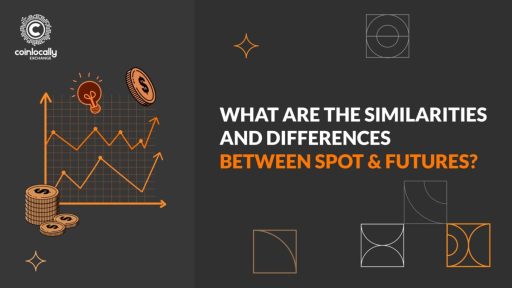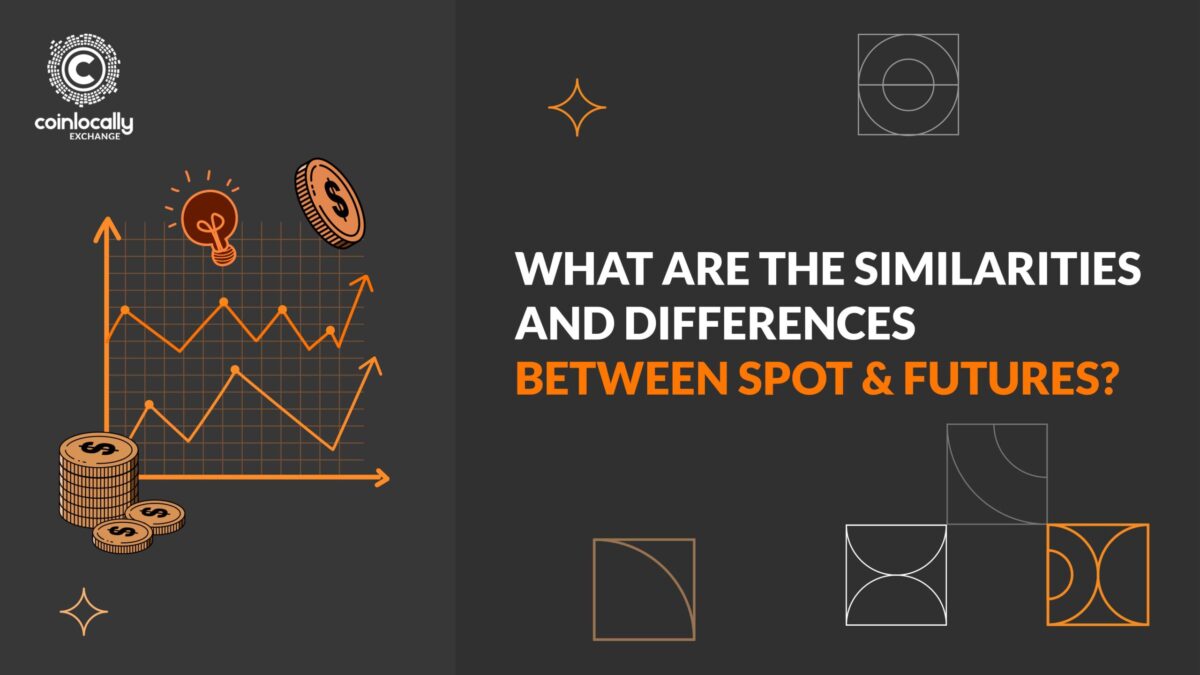One of the most popular methods of trading in the bitcoin industry is spot trading. It entails trading cryptocurrencies for fiat money or other assets, such as other cryptocurrencies. Spot trading is less complicated than other forms of trading, and anyone who has a working knowledge of the market can engage in it.
Contents:
• What Does Crypto Spot Trading Mean?
• Spot Trading vs. Futures Trading
• Disadvantages of Spot Trading
What Does Crypto Spot Trading Mean?
The most popular kind of trading in the bitcoin market is spot trading. It entails making quick purchases and sales of assets. It more closely resembles stock market day trading, in which investors buy and sell assets over the course of a single day.
There are spot markets for a wide range of assets, including bonds, shares, commodities, FX, and cryptocurrencies. You might be more accustomed to spot markets and trading than you think
Spot trading is a well-liked method of trading cryptocurrencies because it is straightforward and doesn’t take as much dedication as other methods. A useful technique to protect against potential price changes in the underlying asset is through spot trading. Consider a cryptocurrency’s price is about to soar to the moon. A spot market is a place to buy.
Spot Trading vs. Futures Trading
Because the cryptocurrency market is still in its infancy, traders are quite confused about which sort of trading is ideal for them.
Spot trading is the term for the exchange of digital assets for quick delivery. That is, you are trying to exchange your cryptocurrency for fiat currency or another cryptocurrency right away when you place a buy or sell order on a spot exchange.
Contrarily, futures contracts are agreements between two parties to purchase or sell a specific item at a predetermined price at a later time. Futures contracts are typically utilized by traders wanting to protect their portfolios from price swings or speculate on the future price of an asset. They are traded on exchanges that sell derivatives products.

The level of commitment required in spot and futures trading is one important distinction. A futures contract is an agreement to buy or sell an item at a specified price at a future date. This implies that you will be obligated to fulfill your contract obligations regardless of how the market price of the underlying asset changes.
There is no such commitment in spot trading. The majority of cryptocurrency spot trading firms offer instant delivery; you either bought it or you didn’t.
The level of leverage that each form of deal offers is another important distinction. Futures contracts are frequently traded with high leverage (up to 100x), which can result in significant gains (or losses) depending on how the market performs (or does not perform).
Spot transactions typically have leverage levels that are substantially lower (up to 5x), which means that your potential gains (or losses) will be less, but more manageable. However, there are frequently additional technical requirements associated with spot trading with leverage, such as maintaining sufficient account collateral, and these services aren’t accessible to all cryptocurrency traders.
So, which type of trade is right for you? If you are new to trading crypto, spot trading may be a better option as it carries less risk than futures trading. However, if you have a good understanding of how markets work and are comfortable taking on more risk, futures contracts could offer better opportunities.
In the conclusion, everything boils down to your particular choices and levels of risk tolerance.
Advantages of Spot Trading
Compared to other forms of trading, such as margin trading and futures trading, spot trading has a number of advantages. Spot trading has a number of benefits, including:
- It is the ideal approach to get started in the bitcoin market because it is a lot simpler and easier to grasp. You will gain a solid understanding of the market’s operation and how to trade cryptocurrencies as a result.
- There is no need to stress about managing leverage or complicated contract clauses.
- Spot trading, as opposed to using only derivatives, gives exposure to the underlying asset. This implies that you can profit from fluctuations in the asset’s price as opposed to only the price’s direction.
- Rather than waiting for a contract to end, you can take advantage of market possibilities as they present themselves.
- Both short-term and long-term plans can use spot trading.

Disadvantages of Spot Trading
Although it may appear to be a simple and quick way to make money, there are a number of drawbacks to this approach that you should be aware of before beginning.
- One of the biggest disadvantages of spot trading is the volatility of the cryptocurrency markets. It can be challenging to forecast when to purchase or sell because prices might vary greatly from day to day. If you’re not careful, this can result in losses. This can lead to losses if you’re not careful.
- Another downside of spot trading is that you have no leverage. This indicates that you are limited to trading with the funds that are currently in your account. As in conventional markets, you cannot borrow money from a broker.
- Spot trading also comes with various fees, including exchange fees, deposit fees, and withdrawal fees. These may grow over time and reduce your earnings.
- Not every cryptocurrency is available for spot trading on every exchange. As a result, it’s possible that you won’t be able to discover either a buyer or a seller for the coin you want to trade.

Spot Trading Is Great for Beginners
Spot trading in cryptocurrencies can be quite profitable, but it also carries some risks. Spot trading has the potential to be a fantastic way to generate quick profits, but there is no assurance that you will do so, and you risk losing money if the market declines.
The bottom line
It’s essential to keep in mind that the cryptocurrency market is extremely volatile and that values can shift quickly. This means that traders must use caution when deciding which assets to trade and that they must be well-versed in the market before they begin.






